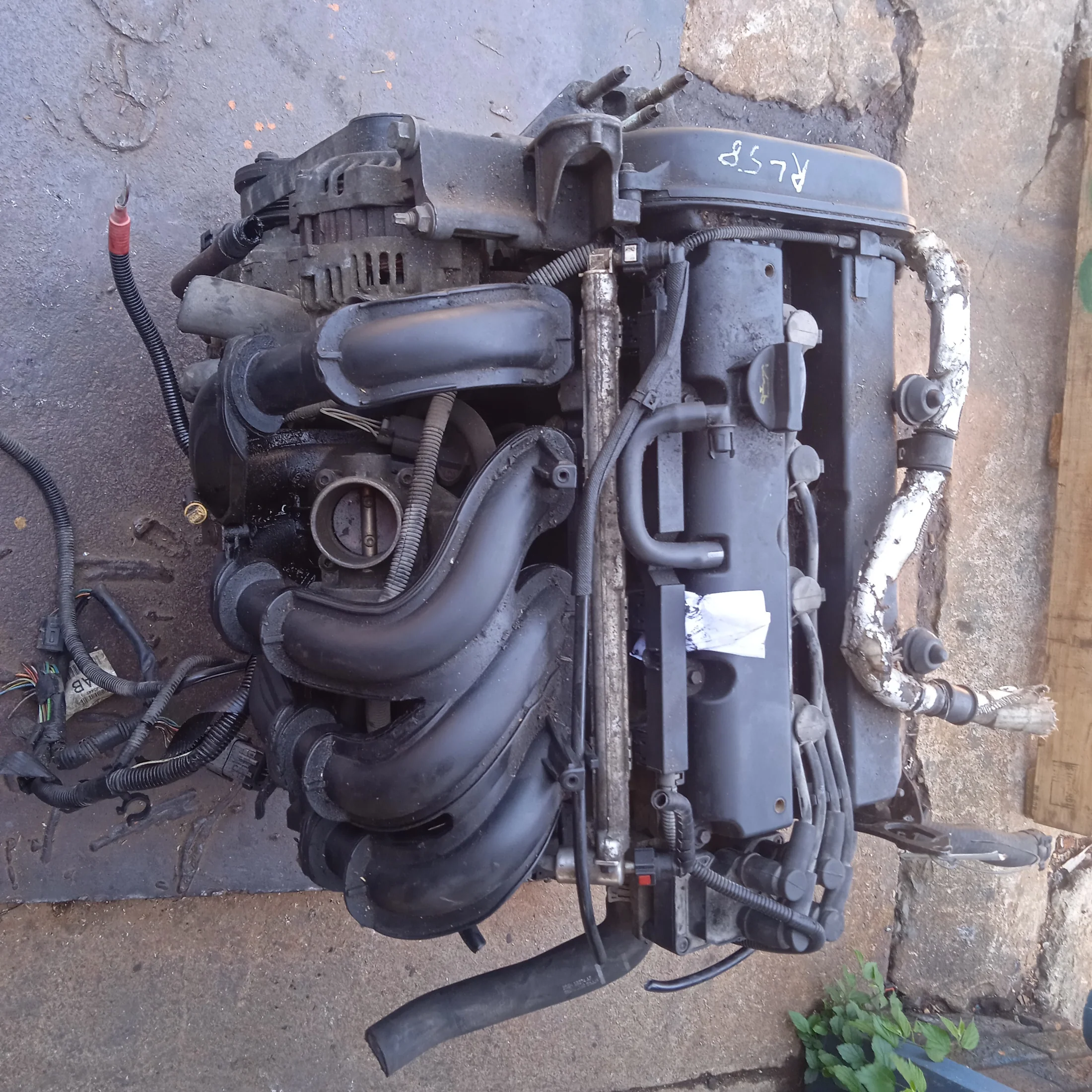Troubleshooting Ford Fiesta Engine Problems: What You Need to Know
Wiki Article
Unlocking the Power of Engines: A Comprehensive Overview to Performance and Performance
Understanding the elaborate mechanics of engines is important for both performance enthusiasts and day-to-day chauffeurs. The responses may redefine our strategy to engine performance and effectiveness in methods that are both informing and important.Recognizing Engine Essentials
What comprises the fundamental mechanics of an engine? At its core, an engine is an equipment created to convert fuel right into mechanical power with a collection of controlled surges or combustion procedures.The crankshaft after that changes this straight activity right into rotational energy, which inevitably powers the automobile. The camshaft manages the opening and closing of the valves, regulating the consumption of air and gas and the expulsion of exhaust gases. Furthermore, the engine counts on a very carefully calibrated fuel-air blend, ignition system, and cooling system to make certain optimum performance and performance.
Comprehending engine basics likewise involves recognizing the relevance of engine cycles, such as the four-stroke cycle, that includes consumption, compression, exhaust, and power strokes. Each phase is important in making sure the engine functions efficiently and effectively. Proficiency of these basic auto mechanics lays the foundation for checking out a lot more complicated engine characteristics and efficiency metrics, essential for optimizing both power output and effectiveness.
Trick Efficiency Metrics
Key efficiency metrics are important for examining an engine's effectiveness and power result, offering useful insights for both consumers and makers. These metrics serve as criteria for engine efficiency, enabling educated decisions in layout, manufacturing, and investing in.Among the main metrics is horsepower, which measures the engine's capacity to execute job over time. Torque, determined in pound-feet, is one more essential metric that indicates the engine's rotational pressure, directly influencing velocity and pulling capacity. Gas efficiency, usually gauged in miles per gallon (MPG) or liters per 100 kilometers (L/100km), evaluates exactly how efficiently the engine converts gas into motion, influencing functional expenses and environmental considerations.
In addition, thermal effectiveness actions exactly how well an engine transforms fuel power into helpful work, exposing insights right into energy losses mainly through warmth. Emission levels, including carbon dioxide and NOx, are likewise vital, reflecting the engine's ecological influence and compliance with regulative requirements.

Tuning Strategies for Efficiency
Tuning strategies play a considerable duty in boosting engine performance by maximizing performance metrics recognized in earlier discussions (ford fiesta engine). Various methods exist to adjust an engine, each adding to improved gas economic climate and decreased emissionsOne effective technique is readjusting the air-fuel proportion, making sure the engine runs within the optimum combustion routine. A leaner combination can enhance gas performance, but it has to be balanced to protect against misfires or engine knock. In addition, reprogramming the engine monitoring system can alter criteria such as ignition timing, which further improves efficiency while preserving power outcome.
One more essential technique includes customizing the consumption and exhaust systems. Upgrading to high-performance air filters and exhaust headers can reduce back pressure, helping with much better air flow. This permits the engine to take a breath even more openly, resulting in boosted combustion effectiveness.
In addition, the execution of innovative tuning devices, like dyno screening, gives accurate data that allows targeted changes. Routinely monitoring these performance metrics ensures that tuning efforts produce the preferred performance results. Collectively, these strategies not just boost engine performance however additionally contribute to long-term sustainability in engine operations.
Maintenance for Optimal Performance
Regular engine maintenance is vital for attaining optimal efficiency and longevity. A well-maintained engine not only runs efficiently yet additionally lessens the risk of expensive fixings and malfunctions. Trick parts needing routine interest consist of oil, filters, belts, and ignition system.Altering the engine oil at suggested intervals is critical, as oil lubricates moving my site components and stops overheating. Changing oil and air filters ensures that contaminants do not harm engine function. Neglecting these components can cause lowered performance and prospective engine damage.
In addition, evaluating and changing used belts and pipes is important to prevent abrupt failings. Timing belts, in certain, need to be changed according to the supplier's routine to stay clear of catastrophic engine damages.
Ignition system must additionally be examined and changed as essential, since they play a vital role in ignition and gas performance.
Future Trends in Engine Technology
Welcoming developments in technology, the future of engine style is poised to transform performance and effectiveness across various applications. Crossbreed and fully electrical powertrains are becoming increasingly mainstream, supplying minimized emissions and enhanced gas efficiency.Furthermore, innovations in materials scientific research are bring about lighter, more powerful components that improve engine performance while minimizing energy usage. Advanced manufacturing strategies, such as 3D printing, permit the creation of complicated geometries that improve air flow and thermal monitoring, hence he has a good point optimizing burning procedures.
In addition, the integration of expert system and artificial intelligence is set to transform engine diagnostics and efficiency adjusting. These technologies can examine large quantities of information in real time, allowing anticipating maintenance and customized performance improvements.
Verdict
In conclusion, opening the power of engines needs a thorough understanding of their auto mechanics and efficiency metrics. Executing efficient adjusting techniques and sticking to routine maintenance techniques substantially improve engine abilities.In addition, the engine depends on a thoroughly adjusted fuel-air blend, ignition system, and cooling system to make sure optimal performance and effectiveness.
Comprehending engine basics also includes identifying the importance of engine cycles, such as the four-stroke cycle, go right here which consists of intake, exhaust, compression, and power strokes. Proficiency of these essential auto mechanics lays the groundwork for discovering much more complex engine characteristics and efficiency metrics, important for maximizing both power result and efficiency.

Welcoming innovations in innovation, the future of engine style is poised to transform performance and efficiency across various applications.
Report this wiki page